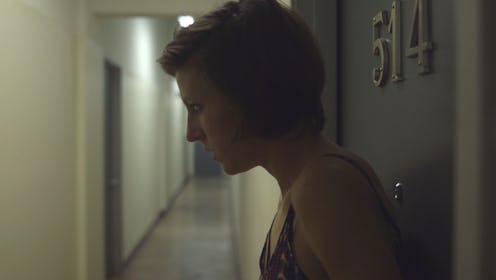Books
Shakespeare's Quotes Are Used To Explore Rape Culture In New Film
Good ol' William Shakespeare is more relevant than ever. Perhaps that's not exactly surprising in our current social and political atmosphere, but it's still incredibly interesting to see The Bard's work making waves, from the much-maligned (and conversely supported) politically charged rendition of Julius Caesar now playing at The Public Theater's free Shakespeare in the Park program, to the new short film "Was It Rape, Then?" which repurposes Shakespeare's words to take an unflinching look at rape culture.
The short, which was produced by by Thaddeus Shafer, Kari Lee Cartwright, and Charissa J. Adams, takes lines from various Shakespeare plays and uses them to recreate the many dire experiences women can encounter because of rape culture. Several women are depicted, all navigating social situations and internal thoughts that are centered around non-consensual sex. From the very first scene, of a woman waking up in a bed, frantically gathering her clothes and escaping an apartment while someone is in the shower, and saying to herself "Let me be severe to myself, but not unjust. Was it a rape, then?" we can see the fear, anxiety, and even self-judgment that women suffer under rape culture.
Several women are depicted throughout the film, as they navigate social situations and internal thoughts about non-consensual sex. From something as seemingly innocuous as an unwanted hand on the small of your back to the familiar scene of a woman walking alone at night through a group of catcalling men, "Was It Rape, Then?" explores the range of experiences that can be considered rape, or in other words, a physical violation. The women, though, do not crumble under the fear and injustice, but instead turn their pain into triumph, again using Shakespeare's words to fight back against their oppressors.
It's a powerful look at what all women know to be true: that "what men daily do" can tear women down and strip them of their dignity and their right to their own space, their own bodies and their own safety. It is at the same time empowering, motivating and angering, which, in an interview with HuffPost, Cartwright says is the main point. She hopes that project will make viewers feel “connected, empowered, emboldened and energized" and that viewers will be able to look beyond the “harsh line between rape/not rape" to finally confront all the ways women are physically violated, and what we can do to stop it.
